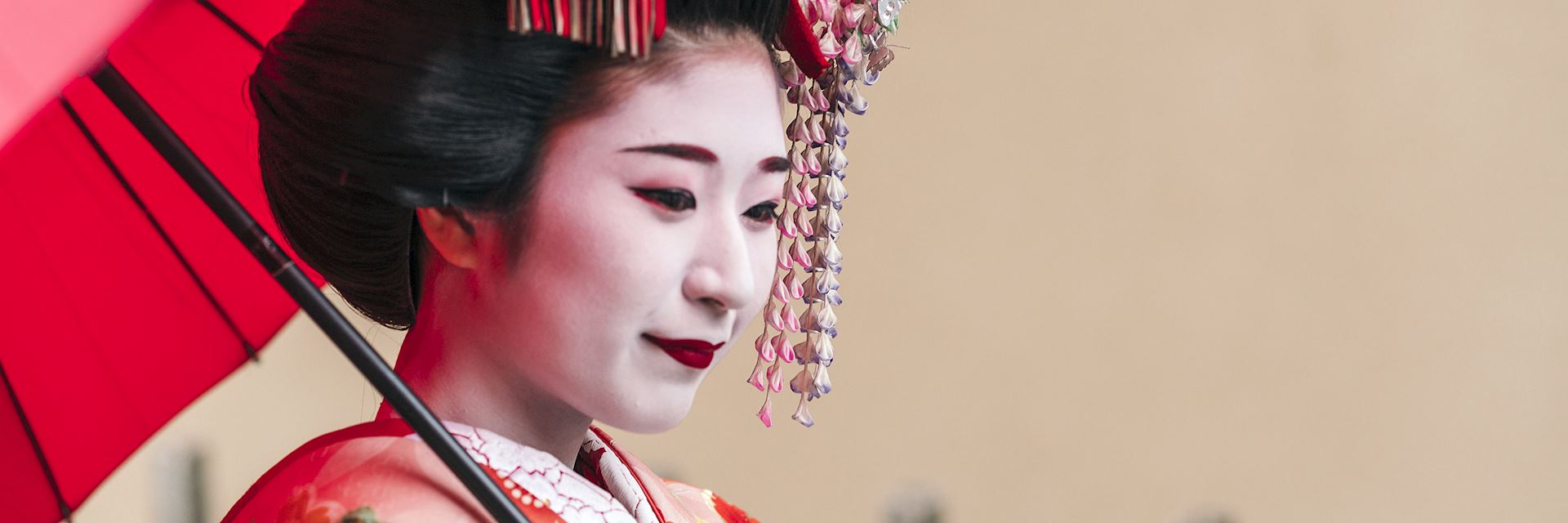Practical Information
No country in the world is as ‘foreign’ as Japan. It is therefore essential to have someone planning your trip who knows the country first-hand and who can talk you through the precise details of your day-to-day itinerary.
To travel between attractions we generally recommend making use of Japan’s world-class rail network, and combining this with some private guiding and carefully selected small group tours to help you get your bearings. We hand-pick accommodation to suit your taste and budget, choosing from our personally researched selection of hotels and traditional ryokan inns.
Travelling with us
With our thorough knowledge of the destination we can send you extremely comprehensive pre-departure information, including detailed transport and accommodation information in English and Japanese to enable you to get as much out of the country as possible in the time you have available.
Whilst other tour operators find themselves tied down to simplistic ‘follow-the-flag’ group tours, our approach ensures you will talk to an expert from the first phone call, whose thorough knowledge and detailed planning will provide you with all the support required to experience the real Japan.
Language
Japanese is the official language. Some English is spoken in major cities.
Food & Drink
Japan has one of the world's most sophisticated food cultures. Some of the more famous specialities, including sushi and sashimi can be a little expensive, but it is easy to find delicious food at very reasonable prices. Noodles are an excellent lunch option in soup or fried dishes, offering a varied and filling meal. Other favourites include bento boxed lunches, teriyaki, sukiyaki, tempura and nabe. Traditional Japanese drinks include sake and shochu, a strong aquavit, often mixed with soda or juice. Local brands of beer such as Kirin, Sapporo, Suntory and Asahi are recommended.
Tipping
There is no culture of tipping in Japan, and nobody expects it. The only exception is in high class ryokan, where a token of ¥2000 might be left in an envelope for the room attendant. Compulsory service charges are levied in some hotels and restaurants.
Money
Do not be afraid to carry cash on your person as Japan is an extremely safe and even more importantly, honest country. The local currency is the Yen. Major credit cards are accepted in most hotels and restaurants, but it is difficult to use them to get cash advances. The Japanese Post Office ATMs in major branches accept foreign issued debit and credit cards, as do the ATMs in many branches of the ubiquitous 7-Eleven convenience store. Traveller's cheques in sterling or yen can be exchanged at most major banks, larger hotels and some duty-free shops.
Social Issues
Japanese manners and customs are vastly different from those of Western people. However, they do not expect visitors to be familiar with all their customs but expect them to behave formally and politely. Bowing is the customary greeting. The honorific suffix san should be used when addressing adults. When entering a Japanese home or restaurant it is customary to remove shoes and exchange them for indoor slippers. When entering hot-spring baths, which are normally segregated, clothes are removed and you enter the bathing area naked except for a small towel. Wash thoroughly at the showers or taps before entering the bath. Never wash in the baths themselves. The principal thing to avoid when eating, in common with most of northern Asia, is to leave your chopsticks sticking up vertically from your rice bowl.
Travel Advice
Our country specialists can advise on any safety concerns you may have. For current information, please refer to the Foreign, Commonwealth & Development Office website.
When to go to Japan
You'll find temperature and rainfall information, together with a month-by-month guide on visiting, on our guide for when to go to Japan.
More Information
-
Flight Time
11½ hours (Tokyo) -
Recommended Airlines
British Airways, Turkish Airlines -
Time Zone
UTC +9
